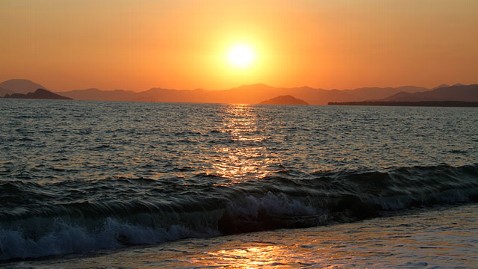What Will Obama Do to Tackle Climate Change?

Tom And Steve/Getty Images
President Obama vowed in his inaugural speech Monday to respond to what he called the "threat of climate change," saying, "failure to do so would betray our children and future generations."
Pressed on what the president plans to do to take on climate change, White House Press Secretary Jay Carney declined to offer specifics:
JONATHAN KARL/ABC NEWS: On climate change, can you help me understand specifically what the president wants to pursue in a second term on this? Does he have legislation he would like to see Congress pass? Are we back to cap and trade? What, specifically, does he want to do that he didn't do in the first term?
JAY CARNEY/WHITE HOUSE: Well, I think the president has long supported congressional action on climate change. And while it's clear that bipartisan opposition to legislative action is still a reality, the president's position remains the same as it was in the first term. He looks forward to building on the achievements made in the first term, and he looks at this in a broad way because this isn't deficit reduction, for example, is not a goal unto itself. We pursue it in a way that helps our economy grow and helps it create jobs. Otherwise, it's not worth the effort, in his mind.
Climate change is not - you don't pursue action that helps deal with that problem just because of the problem itself, but because there are huge opportunities in alternative energy.
Whether anyone in Washington or elsewhere likes it or not, clean energy technology is going to be a huge part of the 21st century global economy. We can make choices now that ensure that those industries are domestic, that we dominate those fields of endeavor and we create the jobs associated with those industries here in America, or we can substitute our dependence on foreign oil for a dependence on imports of clean energy technology.
The president believes that would be short-sighted. So, you know, he looks at this in a more holistic way … and he will move forward in implementing some of the actions that he took in the first term and build on the progress that was made in the first term.
KARL: He dedicated more of that speech to climate change than any other specific policy area.
CARNEY: I would - I would encourage everyone who looks at the speech not to break it apart because we view the inaugural address - the president views the inaugural address and the speech he will give to Congress on Feb. 12- the State of the Union address - as part of a package - as two parts of a package. And that has been tradition. … Inaugural addresses tend to be about the president's vision - that certainly was the case yesterday - about how we move forward together as a country.
The policy specifics and - I think for those who do this in Washington, like number of words dedicated to each issue and which position they achieve in the address, I would probably discourage you from doing that after he gives the State of the Union, but it's more appropriate for an address like that.
KARL: But why did it have such a prominent focus in this speech and such a relative narrow focus, if any, in the campaign?
CARNEY: I contest that assertion, because in fact … he raised the challenge of climate change frequently in the campaign. He talked about it in press conferences, in recent press conferences, as well as when asked about it. He addressed fully his commitment to dealing with this challenge and the impact it has our economy and our people.
So you know, it's an important issue. It's a priority. But there - it is not a singular priority; it is one of a host of priorities that he believes we can act on if we work together.
KARL: Did he run a single ad during the entire campaign that invoked climate change?
CARNEY: You know, I would refer you to the ad makers. I decided early on in that process not to view every ad that was broadcast, because who would have the time? So I can't remember, but it was certainly an issue that he talked about frequently on the campaign trail, and you know, it's one that he believes is a priority.